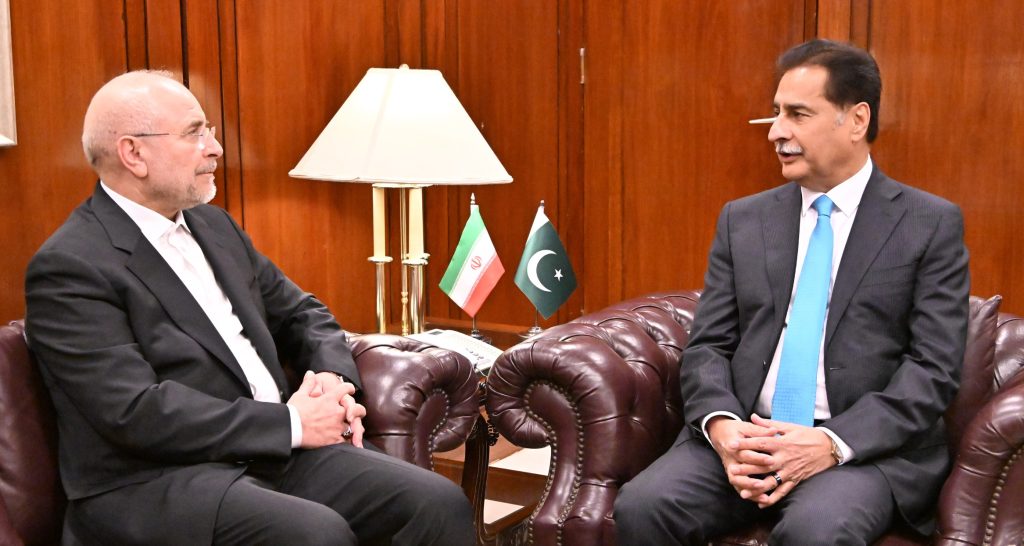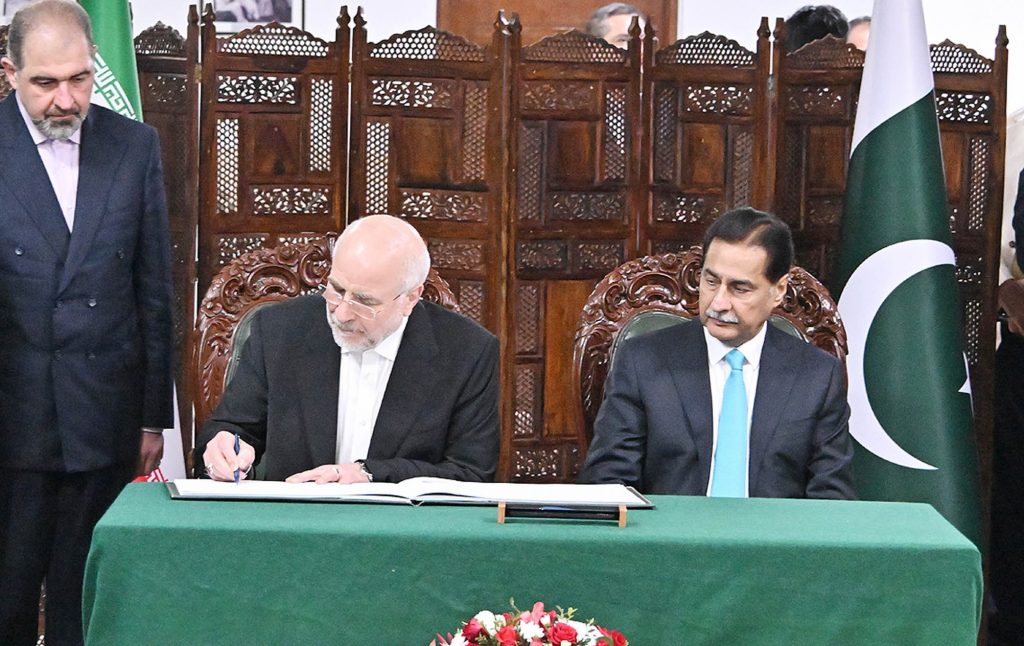by Muhammad Mohsin Iqbal
Diplomatic activities in Pakistan’s capital have entered a phase of remarkable vibrancy. Islamabad, a city long known for its tranquil beauty and poised diplomacy, is once again emerging as a hub of regional and international engagement. The embassies are alive with receptions, cultural evenings, and flag-hoisting ceremonies that reflect not merely formalities but a deeper sense of shared celebration and fraternity. The recent series of events held to commemorate the national days of China, Saudi Arabia, and Turkey were not mere diplomatic rituals; they carried a symbolic warmth, as if Pakistan were celebrating its own milestones. These gatherings, steeped in camaraderie and mutual respect, speak to the enduring friendships Pakistan has cultivated with these nations — friendships rooted in shared faith, mutual support, and a collective vision for regional stability.

In the midst of this renewed diplomatic enthusiasm, the visit of the Speakers of the Grand National Assembly of Türkiye Mr. Numan Kurtulmuş and the Milli Majlis of Azerbaijan Ms. Sahiba Gafarova to Islamabad, at the invitation of the Speaker of Pakistan’s National Assembly, Sardar Ayaz Sadiq, marked a defining moment in parliamentary diplomacy. The trilateral conference of the three Speakers was not a mere ceremonial gathering but a serious dialogue on issues of mutual concern and regional importance. The discussions revolved around economic cooperation, trade facilitation, counterterrorism, and enhancing parliamentary exchanges to strengthen democratic institutions in the region. Such engagements have rekindled the spirit of collaboration among nations that share historical, cultural, and religious bonds. The joint resolve to promote peace and prosperity through legislative cooperation demonstrates that diplomacy is no longer confined to foreign offices alone — parliaments, too, are becoming dynamic arenas of international understanding and partnership.
Adding further weight to these diplomatic endeavors, the arrival of the Speaker of the Islamic Consultative Assembly of Iran Mr. Mohammad Bagher Ghalibaf on the special invitation of Sardar Ayaz Sadiq, accompanied by a high-level parliamentary delegation, has given a new dimension to Islamabad’s diplomatic momentum. The Iran-Pakistan relationship, grounded in deep historical and cultural ties, has always carried a potential far greater than the political frictions or external pressures that occasionally shadow it. The ongoing parliamentary interactions between the two countries are expected to focus on issues of mutual concern, including border management, trade corridors, energy cooperation, and cultural exchange. More importantly, these interactions are likely to promote a spirit of understanding and collaboration not only between the two nations but also among other neighboring Islamic countries that look toward Pakistan and Iran as influential actors in the region.

This series of high-profile visits and conferences is not happening in isolation; it represents a conscious effort by Pakistan to revive and reinforce its diplomatic engagement with the Muslim world. The regional landscape, especially in South and West Asia, is undergoing significant transformations, and Pakistan appears determined to play its rightful role as a bridge between nations — not only geographically but also politically and culturally. The willingness of countries like Turkey, Iran, Saudi Arabia, and Azerbaijan to engage Pakistan in such depth and frequency signals a collective recognition of Islamabad’s strategic importance and the trust placed in its leadership.
Particularly commendable are the cooperative efforts undertaken between Pakistan and Afghanistan, often facilitated by other brotherly Islamic countries. Despite the complexities that define the border regions and the political sensitivities involved, several friendly states have voluntarily and sincerely assisted in bridging the gaps between Islamabad and Kabul. Their mediatory and humanitarian roles — aimed at fostering dialogue, promoting stability, and addressing the socio-economic challenges faced by the Afghan people — are beginning to yield positive outcomes. Pakistan’s commitment to regional peace, coupled with its historical responsibility as Afghanistan’s closest neighbor, continues to shape its foreign policy vision toward a more peaceful and interconnected region.
The spirit of these recent engagements reflects a broader transformation in Pakistan’s diplomatic posture — one that emphasizes multilateralism, parliamentary diplomacy, and people-to-people connections. The country’s leadership, both political and parliamentary, appears to have recognized that diplomacy in the modern world cannot rely solely on traditional statecraft. It must now include collaborative dialogues, cultural exchanges, economic partnerships, and parliamentary initiatives that bring nations closer on the basis of mutual respect and shared destiny.
As Islamabad hosts one high-level delegation after another, it is not merely witnessing the rituals of diplomacy but scripting a new chapter of regional cooperation. The vision taking shape in Pakistan’s capital today is one that seeks harmony among its neighboring Islamic countries — a vision where prosperity replaces suspicion, and cooperation triumphs over competition. Such diplomacy, if sustained with consistency and sincerity, has the potential to unlock vast economic opportunities, strengthen political trust, and create a regional environment conducive to peace and development.
The way forward lies in institutionalizing these engagements. Pakistan must continue to encourage parliamentary diplomacy by holding regular trilateral and multilateral forums that focus on trade, education, energy, and security cooperation. The foreign policy apparatus should complement these efforts by translating parliamentary goodwill into concrete agreements and practical projects. Enhanced connectivity, cultural exchange programs, and youth cooperation among Islamic countries could further deepen these ties.
Islamabad today stands at the crossroads of renewed diplomatic vitality and immense potential. Its active engagement with friendly nations is not only a reflection of its resilience but also a reaffirmation of its desire to shape a peaceful and prosperous regional order. The ongoing flurry of diplomatic activity — from the celebrations of friendship to the convening of serious policy dialogues — signals that Pakistan is once again reclaiming its role as a unifying force in the Muslim world. With wisdom, patience, and perseverance, the seeds of cooperation sown in these days of diplomatic fervor can indeed blossom into a future of shared progress and enduring peace.

















